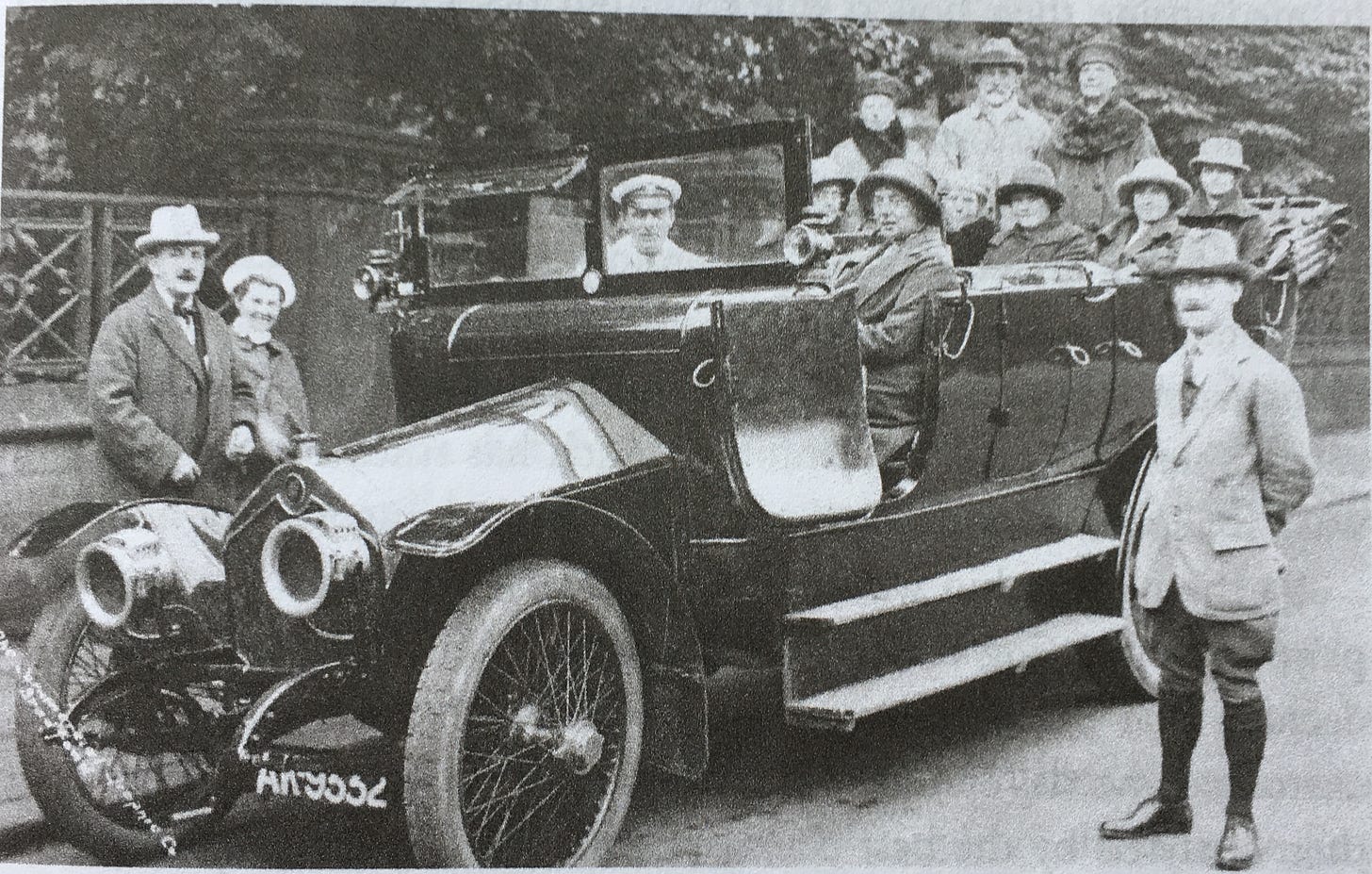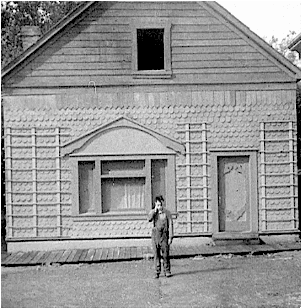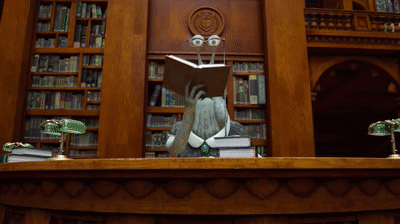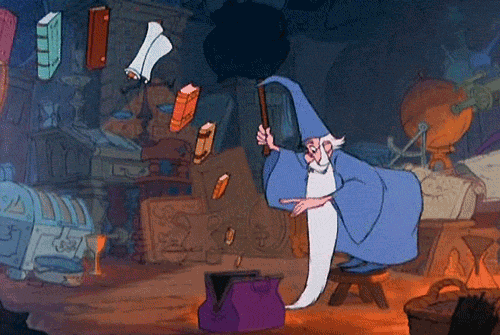My great-grandfather used to run mystery tours. He'd conduct his friends and neighbors to local beauty spots around Yorkshire in a charabanc — a sort of enormous convertible bus — showing them historical sites and natural wonders they might not have otherwise gotten the chance to see.

Welcome to The Rare Commons, my digital mystery tour bus convertible. I'm so glad you're here.
This newsletter is for everyone who ever wanted to touch the stuff behind the glass at the museum.
It’s for everyone who saw the giant room at the end of Indiana Jones where they store the Ark of the Covenant and wanted to spend awhile back there just snooping around.
It’s for everyone who maybe watched The Pagemaster one too many times as a kid, or who passes by the entrance to the library and thinks “yeah, maybe I’ll go in there one of these days” but never gets around to it.
Think of it as a monthly curated exhibit of online collections of rare books and special collections around a certain theme: illuminations, zines, fish skin bindings, books that no longer exist, embarrassing diary entries, digital fragmentology, formats, memes, textures, feelings.
I came up with the idea for this project after graduating into a pandemic, at the end of a lengthy education that had been designed to equip me to teach about old books to small groups of people in enclosed spaces. So much for that.
But even before my field was confronted with the challenge of reaching patrons from home, I’d been interested in the unique opportunities of the digital space.
Twitter and Instagram are overrun by pop history accounts, looking at everything from fashion to archaeology to, yes, old books.
At the same time, curators, outreach librarians, digitization teams, and countless library and archive workers spend their careers creating online resources, exhibits, and tools that often go underused, even when they’re publicized on social media.
So this air of ‘mystery’, of dusty treasures hidden in ‘the archive’ by a cabal of miserly archivists and librarians is genuinely ridiculous to me.
If any of the people who wrote those articles spent even one afternoon with a digital preservation librarian, they’d be assailed by enough descriptive metadata to blow their wig clean off.
Not to mention the amount of description, cataloging and preservation that goes on in the brick-and-mortar library that allows the work of digitization to happen in the first place.
I wanted to create something to help bridge that gap - to take the wealth of online resources available for free and bring them to the forefront of people’s attention in a way that encourages curiosity, discovery, and engagement.
When I was a history undergrad at the University of Michigan, I didn’t enter any special collections libraries until the last semester of my senior year. I didn’t think they were meant for me. I thought they were for “serious scholars”, or that they cost money, or that I wouldn’t be welcome.

And, listen, libraries do have to protect resources from overuse and damage - and by resources I mean not just the books and manuscripts, but the staff, too. This is why the Gutenberg Bible isn’t out next to the guestbook.
But the same isn’t true for digital resources.

People often ask if digitization is going to make libraries, and books more widely, irrelevant. And while that’s a complex question with a great deal of nuance to it (even just leaving the word “digitization” up there as though it’s a monolithic one-step process is giving me hives), my simple metaphor for special collections is this:
Did recordings make live music irrelevant? If you’re streaming an album online, are you not going to buy tickets to the show when that band comes through town next week?
More than that, I think of digitization as an entirely new genre of music. Books exist in the digital space in a ton of different ways, serving different purposes, creating new uses and challenges all the time.
Text on its own can be difficult to make visually compelling in real space - anyone who's ever designed a library exhibit will tell you as much. But the digital space offers tons of opportunities to make text more dynamic and manipulable than ever.
We have unprecedented access to the treasure-trove of digital resources made available online, for free, across a breathtaking variety of institutions. So why not have some fun with it?
There are websites that do this work already for a broad audience - places like the Public Domain Review and Open Culture.
But I want to do more than just present a link to digital collections — I want to use them to illuminate a series of narratives, to think critically about how we access and make use of books online and in real life, and to have some fun snooping around looking at cool stuff for free.
Basically, the idea is to empower everyone with even the slightest interest to make use of the amazing digital resources created by libraries, museums, and other heritage institutions that are available to all of us, and to help you think differently about the way we access and make use of information in our everyday life.
If you’re able, I think it’s absolutely worth your time to reach out to your local special collections or rare book library and have a look, up close and personal, at a really old book. Apart from a wealth of curated exhibits, libraries will often host lectures and show-and-tell sessions that allow you to get up and close with the real thing. It’ll change your life.

But in the meantime, you don’t have to be a subject matter expert (although if you are, of course you’re welcome), you don’t have to have a research topic or a recommendation letter, you don’t have to know what an incunable is (but if you subscribe, sooner or later you will.)
Welcome aboard, everyone. Let’s make this mystery tour a little less mysterious, one step at a time.
The first issue comes out July 7, and if you subscribe now it’ll be delivered right to your inbox.
Keep up with all things Rare Commons on Instagram and Twitter at @therarecommons. Feel free to say hi, and let me know what interests you about the world of rare books.








We covet your great-grandfather's charabanc! (Though the strong Los Angeles sunshine makes open-topped tours a better idea than reality.) Looking forward to future posts.
The magical mystery tour is waiting to take you away- looking forward to the trip! Best of luck